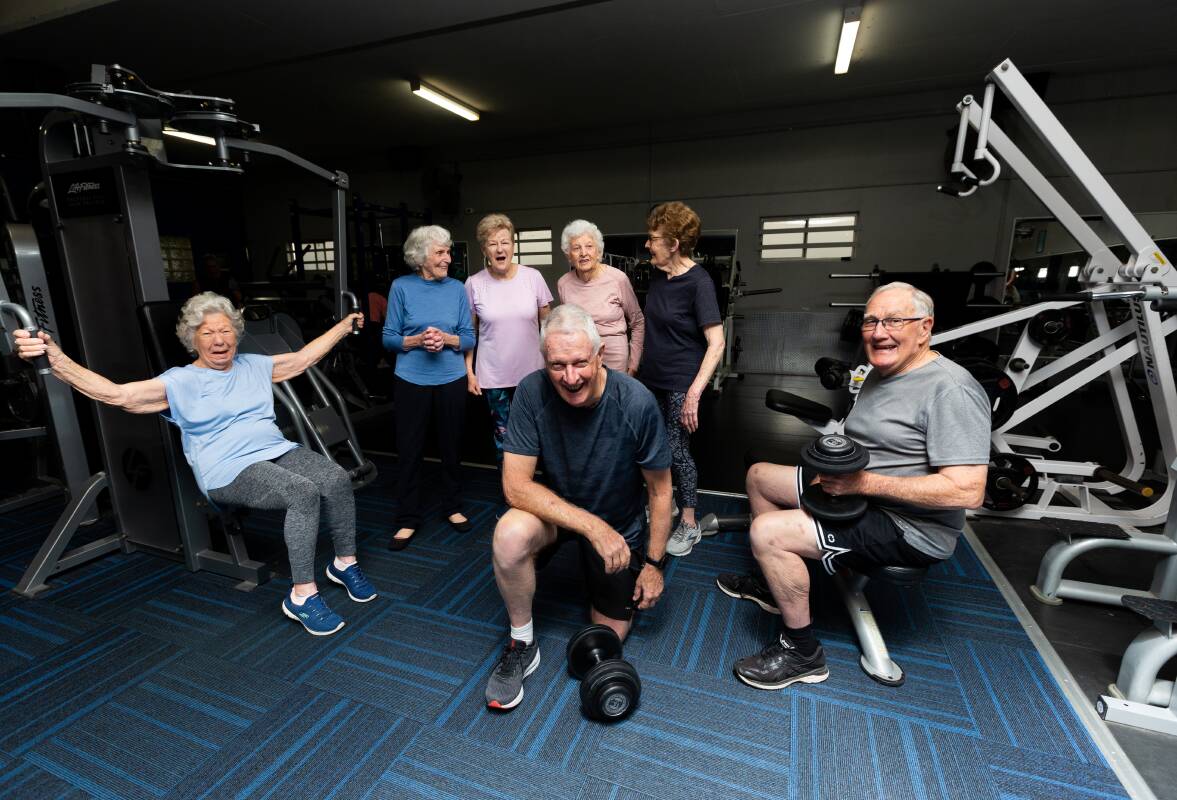
Pat Calvert is 92, goes to the gym three times a week and eats well.
She's one of an increasing number of people living longer, according to an Australian Institute of Health and Welfare (AIHW) report.
The report, to be released on Tuesday, said the median age of death in Australia had increased by 10.9 years for females to 84.9 and by 11.5 years for males to 79.6 from 1964 to 2021.
The report, How long can Australians live?, said the number of people living beyond the age of 100 represented "unprecedented growth".
Deaths of centenarians rose from 1 in 1214 to 1 in 72 from 1964 to 2021.
There were two "supercentenarian deaths" (those aged 110 or older) in the decade from 1964 and 31 in the decade from 2012.
Mrs Calvert is headed for a century of life, but her motivation to stay alive depends on her health.
Asked if she would like to live beyond 100, Mrs Calvert said "I don't know".
"It all depends on my health. I wouldn't like to live that long if I wasn't well. If I'm going like I am now - fine."
Mrs Calvert exercises with an over 50s group - some in their 80s and 90s - at a Warners Bay gym.
Gillian Clarke, 85, said her gym workouts keep her mobile.
"I can still squat. I can still cut my own toenails. That's a question I get every year from a doctor," said Mrs Clarke, of Lakelands, with a laugh.
Mrs Clarke said she was "prepared to live as long as I'm fit and brain-worthy".
"I do have physical problems from a car accident 16 years ago," she said.
"That is why I go to the gym because it keeps everything moving."
She believed "eating healthily" was a "large part" of living longer.
And she only takes one medication for osteoporosis, "which I'm on the verge of".
Fay Glawson, of Warners Bay, does two gym sessions a day on weekdays.
Mrs Glawson, 82, said the social side of gym classes were "just as important as the exercise".
"I'd be quite happy to live to 100 if I was able to get around. At the moment, I'm doing extremely well.
"I walk to the gym each day and home after. I lived on a farm before I came here. I've always been healthy."
Anne Malleny, 84, goes to the gym every weekday for an hour and is a big fan of walking.
"I've always walked. I like it and it became a habit," said Mrs Malleny, of Warners Bay.
"I've always been healthy. I feel that I'm lucky."
The report said Australia had "one of the highest life expectancies in the world (83.2 years in 2021)".
It was ranked fifth among 38 other OECD countries.
Japan was top (84.7 years), closely followed by Switzerland, Korea and Spain.
AIHW spokesperson Richard Juckes said "we all know that average life expectancy keeps on increasing".
"What is interesting is that the maximum age people live to isn't changing nearly as much," Mr Juckes said.
He attributed increased life expectancy to improved medical knowledge and technology, health care such as antibiotics and vaccines, improved living conditions and better quality of life.
Mrs Calvert said the main factors in living longer were "having good family and friends and keeping active and interested in everything".
"I'm just happy I've done the right thing and it's paying off. I've tried to live a healthy life and worked hard."
She followed the adage of "everything in moderation".
"I will have a glass of wine, but very seldom and only on special occasions," she said.
"I eat well and I'm not a smoker."
Mrs Clarke said she was "at a lunch last Friday for a gym instructor retiring at 70 because she needs to travel overseas".
"I was pointing out that there were a lot of people up dancing," she said.
"I said we need the health department and newspapers here now to see what the gym can do for people of an older age."
The report said the most common age at death in the 1960s to mid-1970s was infants aged under one. Since then, most deaths have occurred at older ages.
In the decade to 2021, the most common age of death was 87 for males and 91 for females.
The oldest age of death had shown minimal improvements over time.
"From externally validated records, the oldest living person in Australia was female and believed to have died at age 114 in 2002," Mr Juckes said.
"In comparison, the oldest living Australian male died at 111 in 2021.
"The oldest living person globally is believed to have died at 122 in 1997 in France."







